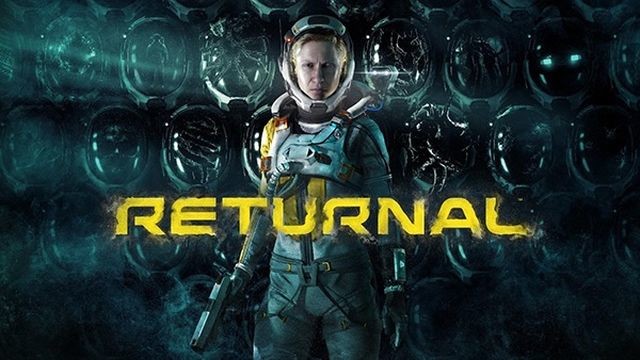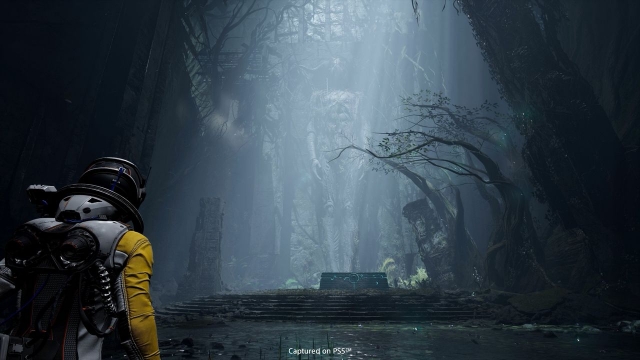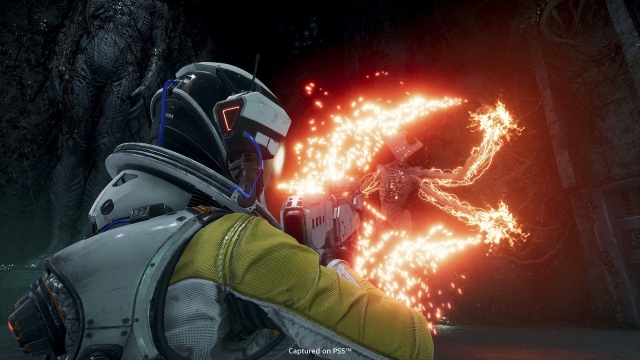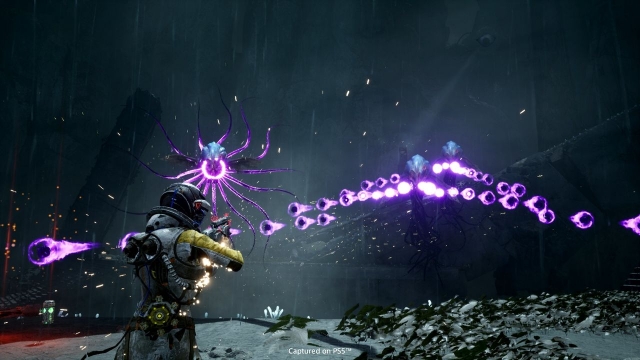Returnal

Housemarque has been one of the most consistent developers in the industry for many years, and they’ve done so while slowly building up a reputation for crafting high-quality experiences across many platforms. Their biggest release was Resogun – a highlight of the PS4’s launch that made use of fast action and shooting in ways that hasn’t been fully replicated yet, but left enough of an impression on the industry and its fans that people have made fangames based on it in game creation suites like Dreams. Since then, Nex Machina has been Housemarque’s biggest release and they’ve gone from releasing a large quantity of good games to a smaller quantity of higher-end games. Returnal is easily their biggest project yet and aims to take everything they’ve learned from the past and make something even better out of it.
Returnal has been shrouded in mystery with its concept of a rogue-lite third-person shooter offering a bit of a description, but not really nailing what makes this game feel so special in action. While many games have had the “stranded on a alien planet” motif, very few have managed to capture the sense of fear that such a scenario would evoke. The original Metroid is a master class on this thanks to the dark look of the world and a remarkable soundtrack. There, enemies surrounded you and forward progress was gated with ammo-activated doors. Returnal features a similar system for getting past doors – with some just requiring you to walk through – so they’re like your default blaster-activated ones and then there are red doors that are akin to the missile-activated ones in Metroid, only these require a key to unlock.
Returnal brings about the same kind of fear of the unknown as both the original Metroid, but also Metroid Prime did – and feels a bit more like a blend of the two with a third-person perspective and some bullet hell thrown in for good measure. Returnal keeps a similar sense of progression when it comes to your arsenal as well, with new weapons being earned by finding them in chests and while it may lack a satisfying sound effect, you do get Selene entering data about the new weapon. Selene’s role as a crash-landed pilot who has no idea of what is exactly going on plays out exactly like the storytelling in Metroid: Other M should have.
In theory, having a protagonist in this kind of scenario voice their concerns for notation purposes while also making notes about the dread they’re feeling, what they’re encountering, and so on should work – and it does so here quite nicely. Selene is constantly in a state of fear and every new death leads her to becoming more determined to get to the bottom of the bizarre time loop she’s found herself in. At its core, Returnal is less horror and more thriller, which is far more enjoyable in the long run. By not relying on tricks like jump scares, which franchises like Dead Space have relied upon in the past to convey terror, players wind up being more engrossed in the world itself and wanting to see what’s next – even with a bit of fear coursing through them.
Returnal feels finely-tuned and its gameplay loop is a lot of fun. There’s a surprisingly high amount of fear with every new run as you’re never quite sure what you’ll encounter. Exploring the world with Metroid Prime-style scanning of the environment also draws players into the world more – and there’s even a bit of first-person action at points as well. Housemarque has done a remarkable job when it comes to sucking you into the world and making you care about Selene’s story from minute one. The method of storytelling is different and won’t be for everyone – but anyone who loves classic Metroid-style storytelling where there’s a lot of music between the notes in the tale, it will hook you right away. Returnal’s core combat and traversal are fantastic, with a bit of room for improvement over time.
The DualSense is used to help create a more immersive experience, with small vibrations being used in cinematics for things like flight and larger impacts being felt with more intense jostles. This is right in line with the kind of work that Housemarque did with the DualShock 4 seven years ago by having the speaker be used as a means to give players updates on how well they’re doing. The subtle rumble effects here are impressive and allow for every gunshot to feel a bit different as well. There’s an unnerving wind effect that echoes through the device as well when you find a progression point – but lack the means to properly use it.
The sound from the controller is ominous and does just enough to keep the tension going even when there are no enemies nearby. While Astro’s Playroom may have the best usage of the DualSense in terms of sheer amount of ways it’s used with the triggers, nothing has topped it being used to enhance a game’s atmosphere. One thing that I hope is added in later is better use of the DualSense in the form of gyroscopic controls. While the twin-stick method does work fine for movement and aiming, in a game that is so full of atmosphere it would feel a bit more organic to have motion control.
Visually, Returnal is a stunner – with impressive ray tracing and remarkable depth in the environment. It’s fun to clear a room of enemies and then just soak in the atmosphere. Being able to stare at the ground as puddles slowly build up with rain, or see weird, living parts of the environment pulsate in real-time, draws you in that much more. Selene’s movement and animations are smooth and add another piece of reality to the fantastical goings-on. The various guns she’ll get throughout the adventure don’t just look different, but feel different – with different recoil sounds as well.
The overall sound design is impressive. Beyond the DualSense integration, the voice acting is top-shelf and Selene’s voice has just the right amount of confidence in her skills while also being afraid of what’s going on around her. The acting is organic and the soundtrack is atmospheric, with music that plays into what’s happening, while the strong overall sound design lets the player know when enemies are nearby because you’ll hear them before you see them in larger environments. This truly shines with either a great set of headphones or a nice soundbar/speaker setup as well.
Returnal is the PlayStation 5’s killer app. The console’s first six months have been consistently good, but there has been a lack of killer first-party software. Returnal feels like the first AAA game crafted from the ground up with all of the PS5’s hardware in mind. The game’s usage of the DualSense adds a lot to the experience and is something that the industry needs to study because we are now in an era where the controller used can add to the immersion, and that’s a new element for the industry as a whole. The game’s blend of an original Metroid-style progression system with a rogue-lite and a bit of Alien thrown in with the unknown nature of the world makes Returnal a compelling experience at all times. It looks and sounds great and controls like a dream – although it would be nice if gyroscopic aiming was added in later on for a bit more intuitive control.
Reviewed By: Jeremy Peeples
Publisher: Sony Interactive Entertainment
Rating: 96%
——————————————————————————–
This review is based on a digital copy of Returnal for the PlayStation 5 provided by Sony Interactive Entertainment.
 Game Over Online
Game Over Online







